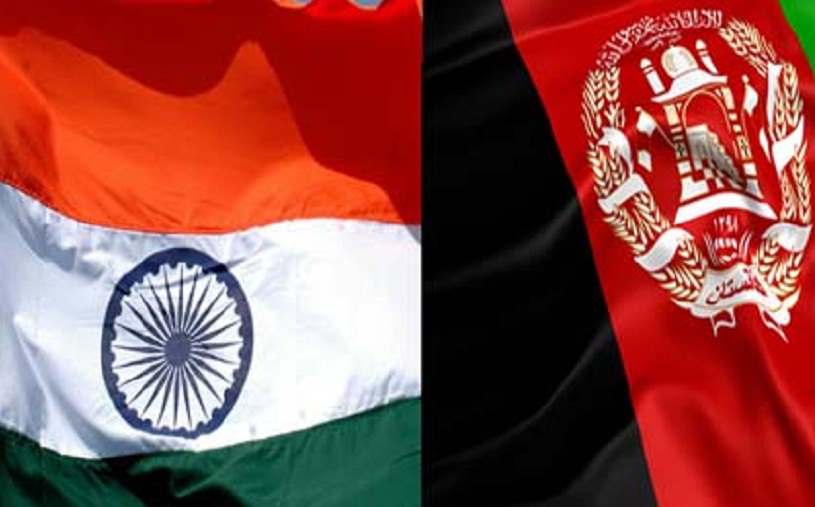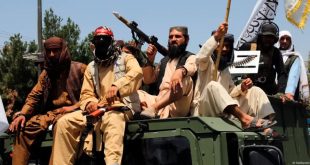By Ajmal Rahimi-India and Afghanistan historically have shared close cultural and political ties, as New Delhi seeks friendly relations in the region and supported successive governments in Kabul until the rise of the Taliban in the 1990s. After the Taliban government was overthrown, once again the relation get raised strongly, regarding the political and economic cooperation, and also millions of dollar aid for reconstruction and stability of Afghan government, Afghanistan’s monumental gains in its polity, economy, and society would have been impossible without the continued support of the international community, and particularly the assistance of the country’s trusted friends and strategic partners like India, the United States, and NATO member countries. Despite its own many domestic needs, India is Afghanistan’s fifth largest donor, providing the country with more than $2 billion an effective aid since 2001.
India’s efficient aid programs include infrastructure development, institutional capacity building, small development projects, as well as the continuously delivering of wheat to Afghanistan. Since 2001 more than 10,000 Afghan students have studied in India on ICCR scholarships, with some 7,000 returning home with standard education and technical skills, which they are using to drive Afghanistan’s stabilization and development, recently the biggest projects related to trade and economic development have signed between the two countries which has resulted biggest deficit in trade relations between Afghanistan and Pakistan, either India seeks their own benefits in such kind of unfavorable situation. Seeking the alternatives trade partners which Afghanistan is no more depending on Pakistani products to augment the interior demand either Pakistan is not allowing India to have trade relevance with central Asia through its territory therefore India, Iran and Afghanistan have signed a tripartite agreement to turn the Iranian port of Chabahar into a transit hub bypassing Pakistan, which has been the only route for war-stricken Afghanistan to the Indian Ocean. From Tehran, New Delhi and Kabul, this is a crucial message, that the path to progress for regional countries goes through joint cooperation and utilizing regional opportunities.
The deal is crucial for the landlocked Afghanistan, as it changes the geopolitics of the region and is seen as a way out of its dependency on Pakistan, clearly if Chabahar is realized it would be the kind of alternate route that would really not cause much comfort and happiness for China and Pakistan. Although India has granted Hajigak mines and has signed the deal for TAPI project, substantial progress is yet to made in terms of implementation of those projects. Connectivity between the two countries is still a problem and how the minerals would be transported to India is a question that needs to be addressed. Recently the long delayed pipeline project( TAPI) which is the biggest example of regional cooperation was discussed by the leaders of Afghanistan , Turkmenistan , Pakistan and India, in order to create a viable and useful economic and transit corridor, which could fulfill India’s energy demands and path to the Economic growth of Afghanistan, in spite of many transit obstacles, the volume of Indo-Afghan trade stood at $680 million during 2013-2014, a figure that should exponentially rise, following the full implementation of the Afghanistan and Pakistan Trade and Transit Agreement (APTTA). Moreover, air connectivity between the two countries has grown steadily. There are now four to five flights operating daily between Kabul and Delhi, transferring to India nearly 1,000 Afghans, many of them medical tourists, seeking treatment in Delhi hospitals, even though Indian investors remain deeply interested in the many “virgin markets” of Afghanistan, including mining, agriculture and agribusiness, information and technology, telecommunications, and others. Although more than 100 largely midsize Indian businesses have already invested in Afghanistan, the Afghan government is strongly encouraging capital intensive investment in the natural resources and infrastructure sectors. There is no doubt that this investment will gradually be made, as the key regional players address the existing interstate tensions and hostilities, that impede investment in Afghanistan and the rest of the region, Afghans are working to make their country “the Asian roundabout, a key hub in the revival of the Silk Road.” Last April, President Ashraf Ghani spoke with Prime Minister Narendra Modi and the Indian business community about his vision of Afghanistan, and encouraged India to consider investing in Afghanistan’s highly profitable markets.
India is involved in a wide range of development projects in Afghanistan: In January 2009, India completed construction of the Zaranj-Delaram highway in southwest Afghanistan, construction of Afghanistan’s new parliament building which was completed, the Salma Dam power project in Herat Province, it has trained Afghan police officers, diplomats and civil servants; and it has provided support in the areas of health, education, transportation, power, and telecommunications, even though India aid and projection implemented directly through Afghan government, and it has always been more efficient compare to the western aid to Afghanistan, which mostly it take place as per the government and people priorities. India’s policy and contribution in economic development has been inclusive, consistent and engaging as New Delhi has been constantly involved in political and development process in Afghanistan and making meaningful or effective contributions, which have also been taken positively by common Afghans. New Delhi also wishes a viable and effective statehood in terms of economic development and to incorporate virtues of democracy and good governance, in Afghanistan.
 Afghanistan Times
Afghanistan Times




